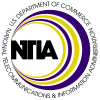Level of Government
Was This $100 Billion Deal the Worst Merger Ever?
When AT&T’s bold megadeal to buy Time Warner was announced in October 2016, combining AT&T’s broadband and wireless networks with Time Warner content, many analysts and investors cheered. They loved the promise of cutting out the cable middleman and delivering entertainment directly to people’s TVs, laptops, and phones. With Hillary Clinton seemingly poised to be the next president, the regulatory landscape looked favorable.

ACP Outreach Grants Are Here – Here’s What You Need to Know
On November 10, 2022, the Federal Communications Commission (FCC) officially opened the application window for the Affordable Connectivity Program (ACP) Outreach Grant with the release of the Notice of Funding Opportunity (NOFO). Applications are due January 9, 2023, at 11:59 PM EST. If you’re interested in applying for a grant, we encourage you to start the process as soon as possible, as there are several steps you will need to take. The NOFO includes information on eligibility, funding allocation, funding prioritization factors, and guidance on how to prepare for receiving grant f
Biden-Harris Administration Awards $5.5 Million to Rhode Island in ‘Internet for All’ Planning Grants
The Department of Commerce’s National Telecommunications and Information Administration (NTIA) awards Rhode Island with its first “Internet for All” grants for deploying high-speed Internet networks and developing digital skills training programs under the Biden-Harris Administration’s Internet for All initiative.

Biden-Harris Administration Awards More Than $5.5 Million to Delaware in ‘Internet for All’ Planning Grants
The Department of Commerce’s National Telecommunications and Information Administration (NTIA) awards Delaware its first “Internet for All” grants for deploying high-speed Internet networks and developing digital skills training programs under the Biden-Harris Administration’s Internet for All initiative.

Biden-Harris Administration Awards More Than $5.7 Million to Iowa in ‘Internet for All’ Planning Grants
The Department of Commerce’s National Telecommunications and Information Administration (NTIA) awards Iowa with its first “Internet for All” grants for deploying high-speed Internet networks and developing digital skills training programs under the Biden-Harris Administration’s Internet for All initiative.

Biden-Harris Administration Awards More Than $6.4 Million to North Carolina in ‘Internet for All’ Planning Grants
The Department of Commerce’s National Telecommunications and Information Administration (NTIA) awards North Carolina with its first “Internet for All” grants for deploying high-speed Internet networks and developing digital skills training programs under the Biden-Harris Administration’s Internet for All initiative.

Biden-Harris Administration Awards More Than $6.4 Million to Georgia in ‘Internet for All’ Planning Grants
The Department of Commerce’s National Telecommunications and Information Administration (NTIA) awards Georgia its first “Internet for All” grants for deploying high-speed Internet networks and developing digital skills training programs under the Biden-Harris Administration’s Internet for All initiative.
$42.5 billion won’t be enough to close the US broadband gap
The Federal Communications Commission (FCC) released the first version of its new broadband map, marking a major step toward the distribution of $42.5 billion in funding for network expansions across the country. The maps are set to be used by the government to calculate which states will get the most money from the Broadband Equity, Access, and Deployment (BEAD) Program, with more funding going to those areas with the most unserved locations.

Investing in Wave 7 — a community-focused broadband provider expanding high-speed internet in rural North Carolina
Connect Humanity has closed its first investment, in Wave 7 Communications, which will enable hundreds of unconnected people to gain access to the internet for the first time.
First look: Summary of the New FCC Broadband Maps
Overall, there are 112 million Broadband Serviceable Locations (BSLs) in the country (excluding territories). Of those, 7.15% of the BSLs are Unserved, which is 8 million. 5.2% of the BSLs are Underserved, or 5.8 million nationally. The Unserved and Underserved numbers provided are how I expect the calculation to be done for the BEAD program: it excludes LEO satellite service and also excludes service provided over unlicensed fixed wireless. It’s important to remember that the denominator in these calculations is BSLs, not housing units. BSLs include small businesses.

